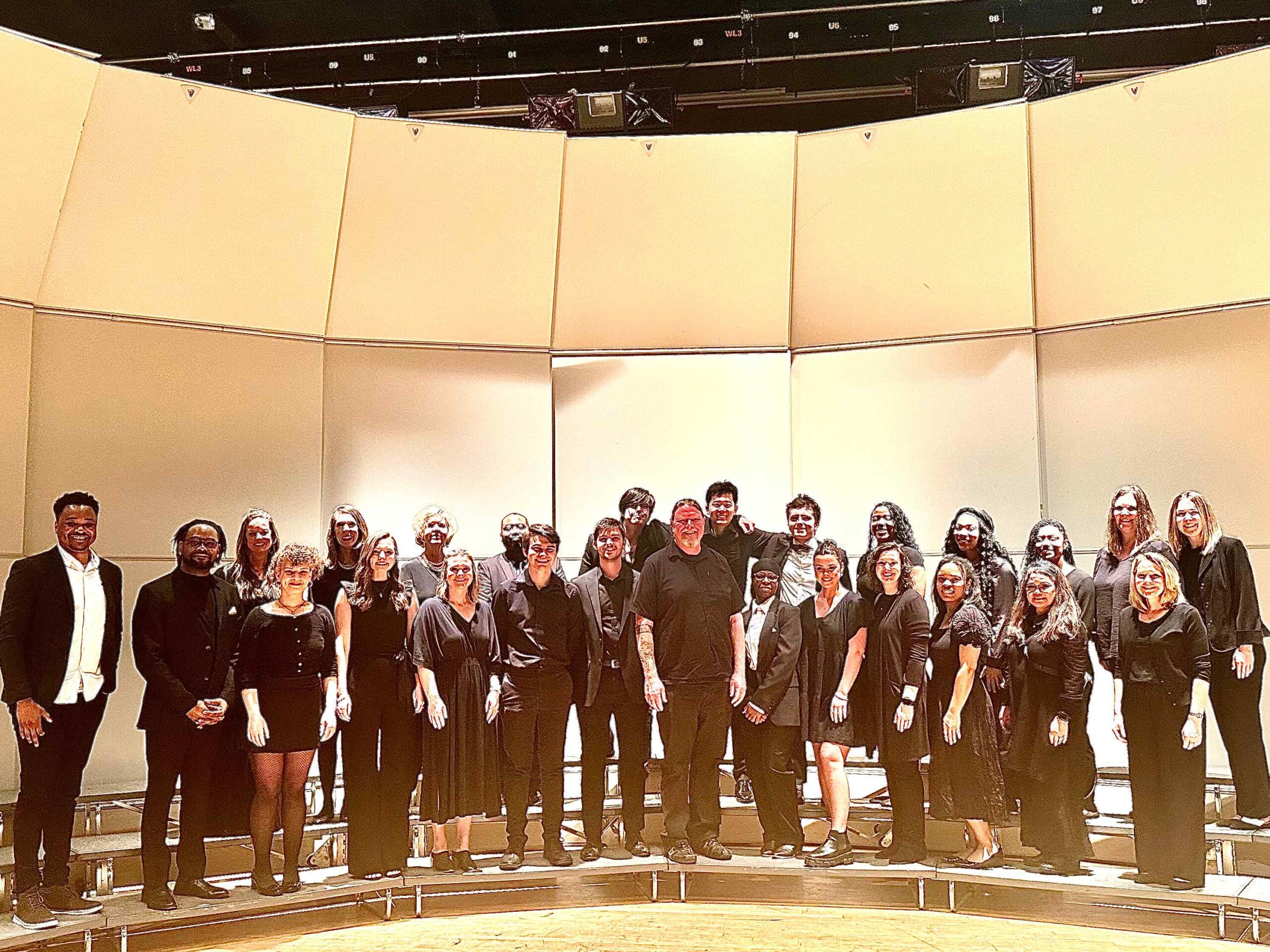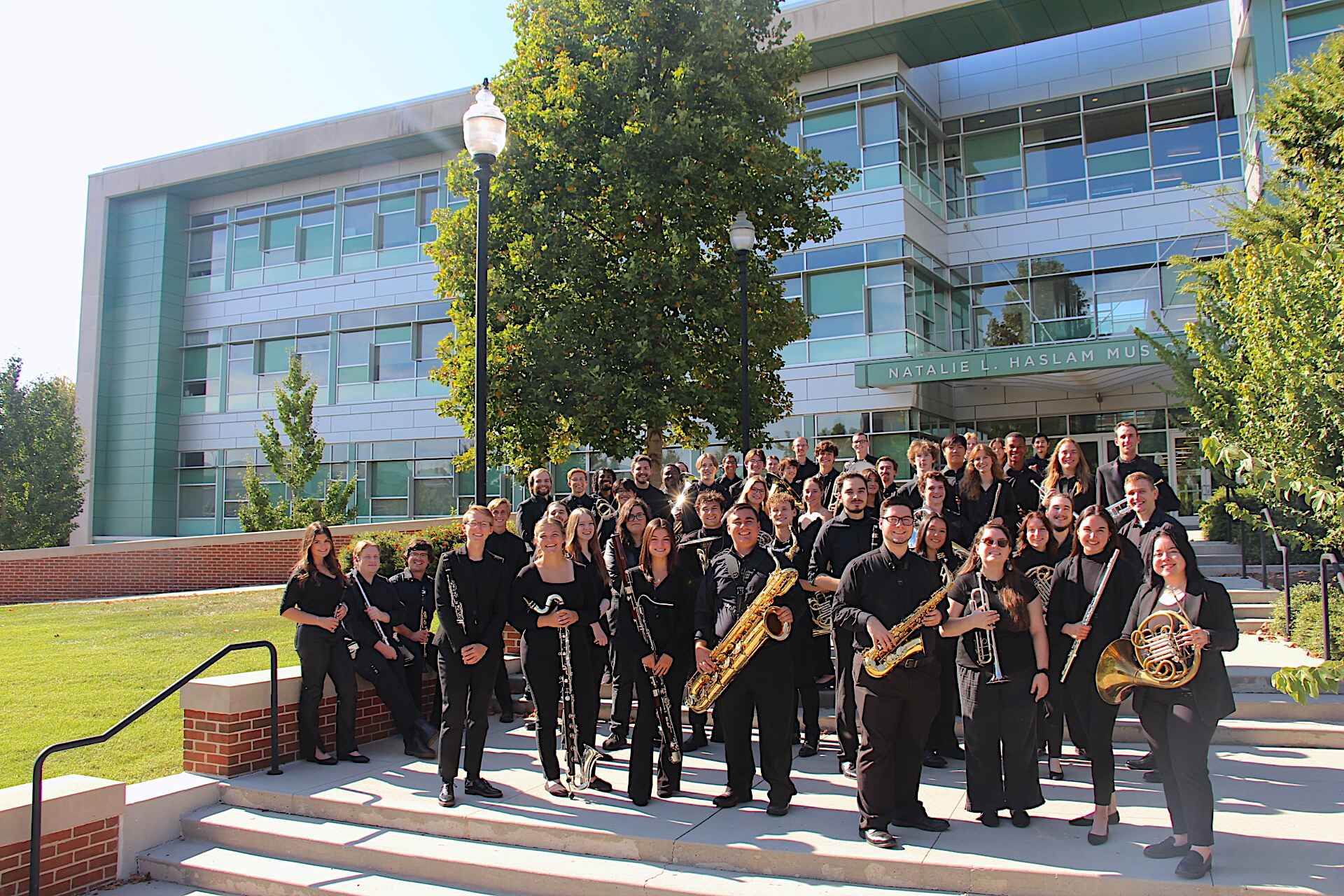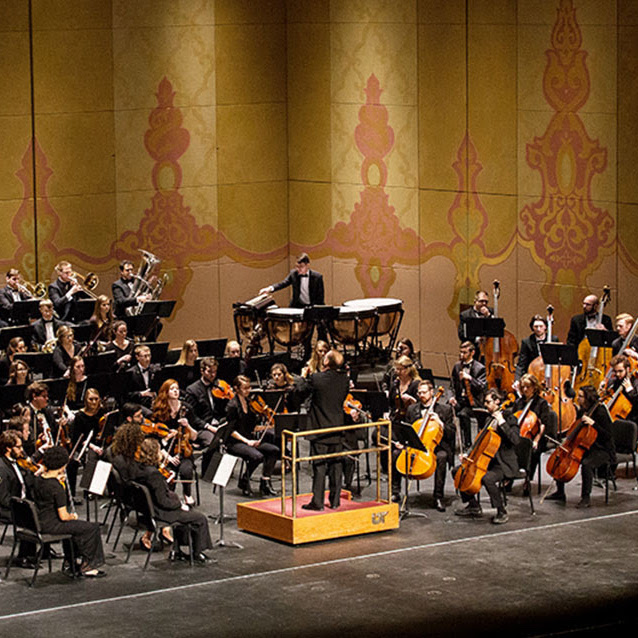Ensembles
-
UT Percussion Ensemble Earns Prestigious Invitation to The Midwest Clinic
The Natalie L. Haslam College of Music is pleased to announce that the University of Tennessee Percussion Ensemble has been invited to perform at The Midwest Clinic International Band and Orchestra Conference in Chicago, Illinois this December. With more than 18,000 attendees from all 50 states and more than 40 countries, The Midwest Clinic is…
-
A New Vision for the Stage: James Kenon Mitchell Leads UT Opera into Its Next Act
Meet James Kenon Mitchell, the new Director of Opera Theatre at the UT Natalie L. Haslam College of Music. On November 14 – 16, UT Opera Theatre will be performing its first opera performance under the direction of Mitchell with an Italian Double Feature: La cambiale di matrimonio and Amelia al ballo. When James Kenon Mitchell…
-
UT Wind Ensemble Makes Historic Debut at National Conference
For the first time in the University of Tennessee Band Program’s 155-year history, the UT Wind Ensemble has been invited to perform at the College Band Directors National Association (CBDNA) National Conference on March 27 in Fort Worth, Texas. The UT Wind Ensemble is one of only seven performing groups selected to perform on a…
-
Auditions Open for Community-Based Tennessee Honor Percussion Ensemble
Andy Bliss, associate professor of percussion at UT, serves as the director of the new community-based ensemble.
-
Drum Line Member Uses Engineering Resources to Fix Part
Original story written by Rhiannon Potkey, Tickle College of Engineering Anukkah Burleson thought there had to be a better solution to fix the whale tail connector on the carrier of her bass drum. Every year, like clockwork, the part would break. Burleson, a senior mechanical engineering major, is a member of the drumline for the…
-

“Gospel in the Gardens” Concert to Uplift Spirits and Fight Food Deserts
Music enthusiasts and philanthropists alike are eagerly anticipating the upcoming “Gospel in the Gardens” concert, set to take place on Saturday, May 4 at 6 PM at Payne Avenue Baptist Church (2714 Martin Luther King Jr. Ave) in Knoxville, Tennessee. This unique event will feature a performance from the new UT College of Music Gospel…
-

UT Wind Ensemble to perform during CBDNA/NBA Southern Division Conference
The UT Wind Ensemble, the premier wind band of the College of Music, was selected to perform during the invitational College Band Directors National Association (CBDNA) Southern Division Conference. The CBDNA is a grassroots organization that serves a variety of constituents, from the conservatory wind ensemble, to the athletic band, to the small college band,…
-
UT Trumpet Ensemble invited to National Trumpet Competition
One of the largest trumpet competitions in the world, the National Trumpet Competition features many different competition categories and age groups ranging from very young children to college trumpeters. After a very rigorous and selective application process, the UT Trumpet Ensemble was invited to the National Trumpet Competition’s “large trumpet ensemble” category with their submitted…
-

UT Symphony Orchestra named 2023 winner of The American Prize in Orchestral Performance
Founded in 2010, The American Prize National Nonprofit Competitions in the Performing Arts is the nation’s most comprehensive series of contests in the performing arts. The American Prize is designed to recognize and reward the best performing artists, directors, ensembles and composers in the United States at professional, college/university, community and high school levels, based…

